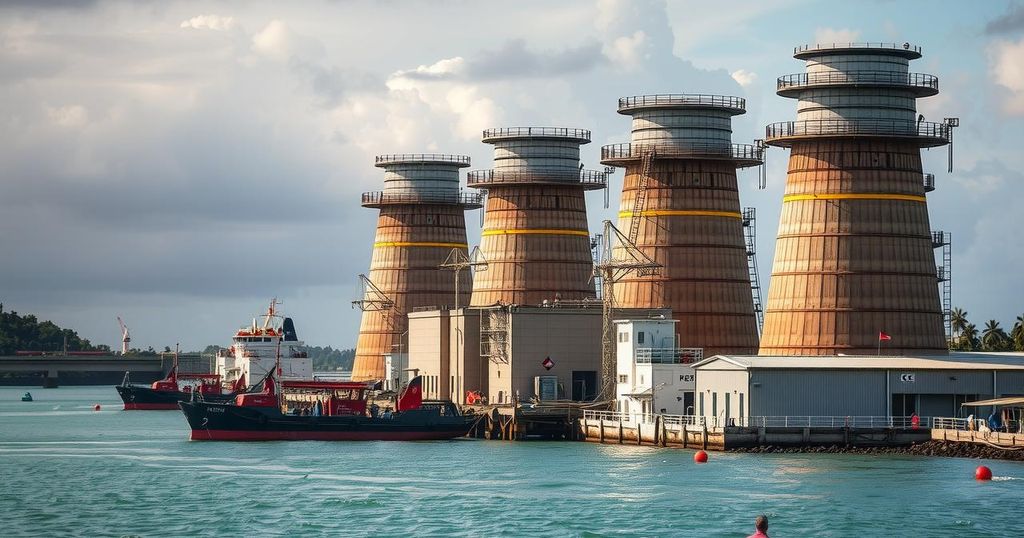Protests in Mozambique Disrupt Power Supply Amid Election Controversy

Post-election protests in Mozambique have resulted in the shutdown of two thermoelectric power plants due to demonstrators demanding an end to energy production. The ruling Frelimo party’s election victory is contested by the opposition, leading to significant unrest and violence across the country, with over 90 casualties reported. With ongoing disputes regarding election integrity, the situation remains critical as national tensions escalate.
Following the recent elections in Mozambique, widespread protests have led to the paralysis of two thermoelectric power plants on Saturday, according to the national utility company. The ruling Frelimo party, which has been in power since 1975, claimed victory in the October 9 elections; however, the results have faced accusations of fraud from the opposition, prompting civil unrest across the nation. In light of the protests, Electricidade de Mocambique reported that demonstrators demanded the total shutdown of energy production, forcing the plants to cease operations due to concerns over potential repercussions.
The closures at the Ressano Garcia and Gigawatt plants—a critical energy source for the southern region—have resulted in a 30 percent shortfall in electricity supply, significantly affecting a population of approximately six million. Social media has circulated videos showcasing severe traffic disruptions near the plants, although these claims could not be independently verified by investigative agencies. The unrest has also prompted intermittent border closures with South Africa, as communicated by Mmemme Mogotsi, a spokeswoman for the South African Border Management Authority.
The protests have escalated following allegations made by opposition candidate Venancio Mondlane regarding an assassination attempt against him, suggesting a deteriorating security situation in the country. Following the election, Mondlane, who secured second place behind Frelimo’s candidate Daniel Chapo, alleged that the official results were tampered with, asserting an independent tally reflected a vastly different outcome. As of now, at least 90 individuals have reportedly lost their lives amid the ongoing clashes between protesters and security forces, with international observers highlighting numerous irregularities in the electoral process.
The current unrest in Mozambique stems from the disputed election results announced by the ruling Frelimo party, which won the polls held on October 9. As allegations of electoral fraud proliferate, opposition figures, particularly Venancio Mondlane, have gained support among demonstrators demanding changes. The opposition’s challenging of the official counts has intensified protests across the nation, leading to significant disruptions, including the shutdown of essential services. With the unrest escalating, the situation remains tenuous as violence continues between demonstrators and government forces.
In conclusion, the protests in Mozambique highlight a significant national crisis following disputed election results, leading to violent clashes and severe disruptions in energy supply. The ruling party’s claim to victory remains challenged by the opposition, casting doubts over the integrity of the electoral process. Consequently, the situation is exacerbated by high tensions and ongoing violence, compelling a closer examination of the political landscape in Mozambique as it prepares for a pivotal transition of power.
Original Source: www.barrons.com






